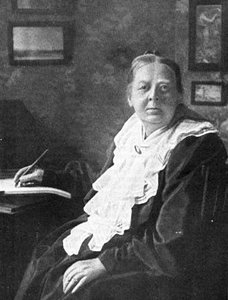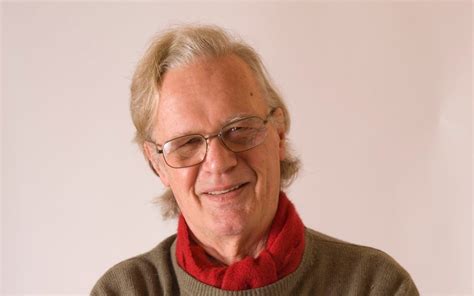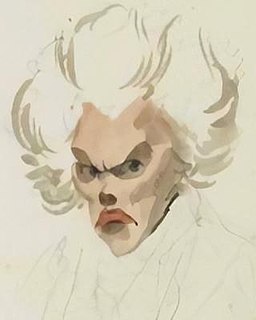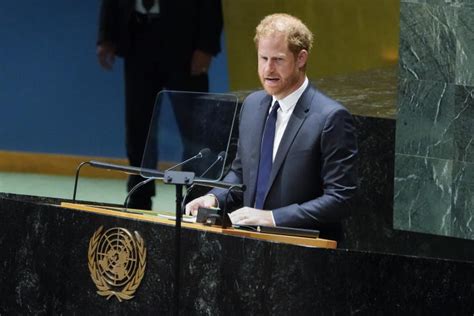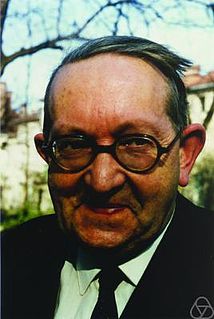A Quote by G. H. Hardy
The theory of numbers, more than any other branch of mathematics, began by being an experimental science. Its most famous theorems have all been conjectured, sometimes a hundred years or more before they were proved; and they have been suggested by the evidence of a mass of computations.
Related Quotes
Astrologers were greatly impressed, and misled, by what they believed to be confirming evidence-so much so that they were quite unimpressed by any unfavorable evidence. Moreover, by making their interpretations and prophecies sufficiently vague they were able to explain away anything that might have been a refutation of the theory had the theory and the prophecies been more precise. In order to escape falsification they destroyed the testability of their theory. It is a typical soothsayer's trick to predict things so vaguely that the predictions can hardly fail: that they become irrefutable.
Mathematics had never had more than a secondary interest for him ; and even logic he cared for chiefly as a means of clearing the ground of doctrines imagined to be proved, by showing that the evidence on which they were supposed to rest had no tendency to prove them. But he had been endeavouring to give a more active and positive help than this to the cause of what he deemed pure religion.
Is it not evident, in these last hundred years (when the Study of Philosophy has been the business of all the Virtuosi in Christendome) that almost a new Nature has been revealed to us? that more errours of the School have been detected, more useful Experiments in Philosophy have been made, more Noble Secrets in Opticks, Medicine, Anatomy, Astronomy, discover'd, than in all those credulous and doting Ages from Aristotle to us? So true it is that nothing spreads more fast than Science, when rightly and generally cultivated.
When I first began examining the global-warming scare, I found nothing more puzzling than the way officially approved scientists kept on being shown to have finagled their data, as in that ludicrous "hockey stick" graph, pretending to prove that the world had suddenly become much hotter than at any time in 1,000 years. Any theory needing to rely so consistently on fudging the evidence, I concluded, must be looked on not as science at all, but as simply a rather alarming case study in the aberrations of group psychology.
It is a matter for considerable regret that Fermat, who cultivated the theory of numbers with so much success, did not leave us with the proofs of the theorems he discovered. In truth, Messrs Euler and Lagrange, who have not disdained this kind of research, have proved most of these theorems, and have even substituted extensive theories for the isolated propositions of Fermat. But there are several proofs which have resisted their efforts.
We shall see that the mathematical treatment of the subject [of electricity] has been greatly developed by writers who express themselves in terms of the 'Two Fluids' theory. Their results, however, have been deduced entirely from data which can be proved by experiment, and which must therefore be true, whether we adopt the theory of two fluids or not. The experimental verification of the mathematical results therefore is no evidence for or against the peculiar doctrines of this theory.
Srinivasa Ramanujan was the strangest man in all of mathematics, probably in the entire history of science. He has been compared to a bursting supernova, illuminating the darkest, most profound corners of mathematics, before being tragically struck down by tuberculosis at the age of 33, like Riemann before him. Working in total isolation from the main currents of his field, he was able to rederive 100 years' worth of Western mathematics on his own. The tragedy of his life is that much of his work was wasted rediscovering known mathematics.
Pathology, probably more than any other branch of science, suffers from heroes and hero-worship. Rudolf Virchow has been its archangel and William Welch its John the Baptist, while Paracelsus and Cohnheim have been relegated to the roles of Lucifer and Beelzebub. ... Actually, there are no heroes in Pathology-all of the great thoughts permitting advance have been borrowed from other fields, and the renaissance of pathology stems not from pathology itself but from the philosophers Kant and Goethe.
In fact, nothing in science as a whole has been more firmly established by interwoven factual information, or more illuminating than the universal occurrence of biological evolution. Further, few natural processes have been more convincingly explained than evolution by the theory of natural selection, or as it has been popularly called, Darwinism.
We find sects and parties in most branches of science; and disputes which are carried on from age to age, without being brought to an issue. Sophistry has been more effectually excluded from mathematics and natural philosophy than from other sciences. In mathematics it had no place from the beginning; mathematicians having had the wisdom to define accurately the terms they use, and to lay down, as axioms, the first principles on which their reasoning is grounded. Accordingly, we find no parties among mathematicians, and hardly any disputes.
Mathematics has two faces: it is the rigorous science of Euclid, but it is also something else. Mathematics presented in the Euclidean way appears as a systematic, deductive science; but mathematics in the making appears as an experimental, inductive science. Both aspects are as old as the science of mathematics itself.
Mystery is an inescapable ingredient of mathematics. Mathematics is full of unanswered questions, which far outnumber known theorems and results. It's the nature of mathematics to pose more problems than it can solve. Indeed, mathematics itself may be built on small islands of truth comprising the pieces of mathematics that can be validated by relatively short proofs. All else is speculation.


